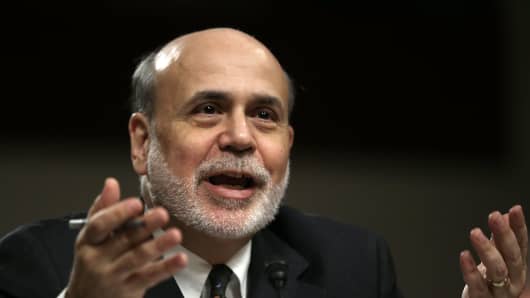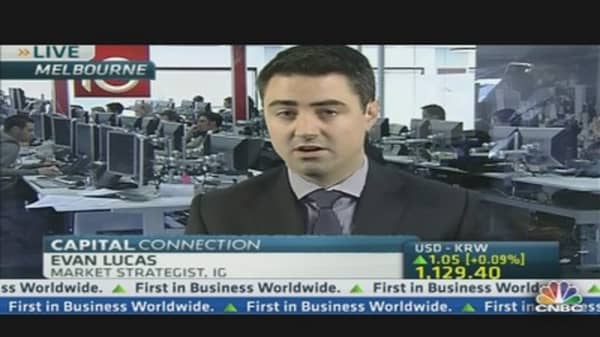If there's one thing the world's central bankers can take away from this week's market volatility, it is that they need to do a better job of communicating, say market watchers.
The latest comments from the U.S. Federal Reserve about tapering its stimulus program and uncertainty about the implications of the Bank of Japan's radical monetary policy have sent markets on a roller-coaster ride over the past three days.
"In both the U.S. and Japan, the message has been mixed to investors," Steve Goldman, managing director at Kapstream Capital told CNBC Asia's "Squawk Box" on Friday.
"Investors need more information on what quantitative easing measures are and so the message you send [as a central banker] is very important and I'm not sure that policymakers in Japan or the U.S. have got that right yet," he added.
Federal Reserve Chairman Ben Bernanke sounded a dovish tone when he testified to Congress on Wednesday, saying that the premature unwinding of monetary stimulus carries a "substantial risk" of slowing the economic recovery. But in a question and answer session, he also said the Fed could start paring back purchases in a couple of months.
(Read More: Two Storms Brewing: One Political, the Other Economic)
It was the last comment that investors latched upon, sending stocks, bonds and most commodities lower in the U.S. on Wednesday in a sell-off that rippled through global markets Thursday.
"What we're left with is a market that was a little more confused than it was before because what we have now is Bernanke saying that potentially, three to four months of data could see QE [quantitative easing] tapered off," said Chris Weston, chief markets strategist at trading firm IG.
In an interview with CNBC on Friday, Fed policymaker James Bullard defended the Fed chief.
"He is trying to summarize what the committee thinks and I think he did a great job with that," Federal Reserve's Bullard told CNBC, referring to Bernanke's testimony to Congress.
(Read More: It's a Big Moment for Japan: Fed's Bullard)





